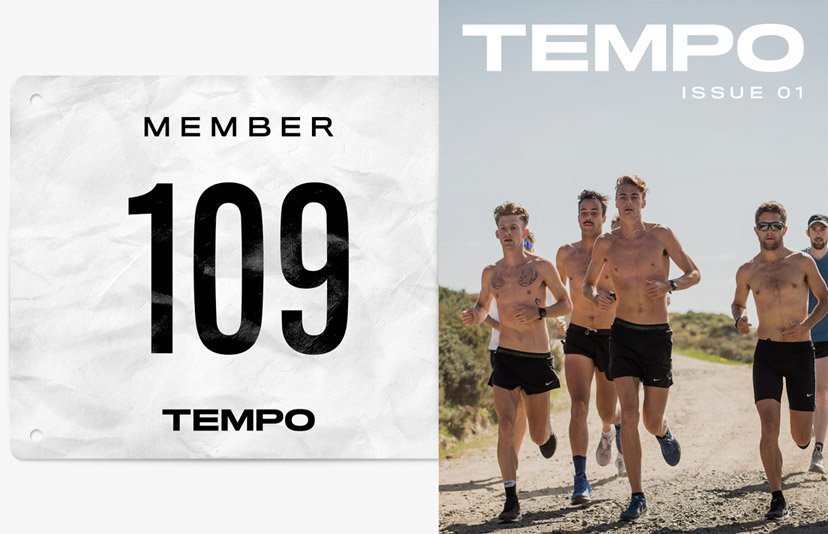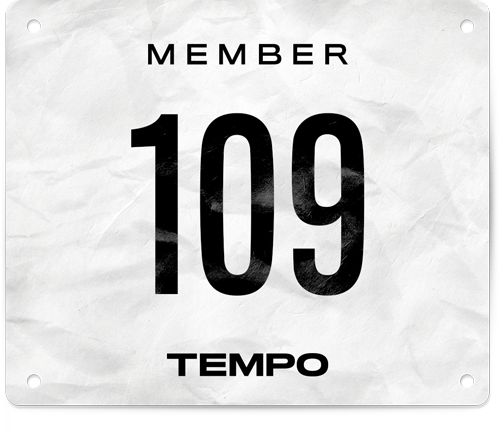Performance
The power of an idea
How Ellie Pashley committed to her potential
One hour and forty minutes south-west of Melbourne, lies a town of 800 people wedged between the summer tourist hubs of Torquay and Lorne.
Shrouded in the creeping edges of the rugged Otway National Park sits Aireys Inlet, an oft-driven past nook, best known for a lighthouse and a pub. From wild foreshore to a rapidly-forgotten coal mine, are a complex set of crushed gravel trails and roads, now a regular stomping ground for Ellie Pashley.
The recency effect now commonplace in the upper echelons of distance running defines Pashley via a formidable set of numbers:
- 31:18.89
- 1:09:14
- 2:26:21
Objectively, it is absurd that more than a decade of Pashley’s efforts can be condensed to four hours of racing. Inversely, these numbers place Pashley among the 30 best athletes in the world for 10,000m, or the 70 best athletes in all of global road racing.
How did Pashley manage to climb from a competitive state athlete, to a name on elite start lists worldwide?
The formative answer lies in the back end of 2016, and the continued scratching of a mental itch - the marathon.
In Pashley’s case, the impetus for a marathon attempt was a mixture of age, and frustration at post-holiday fitness levels.
Pashley recalls a repetitive cycle, reoccuring in 2015, “I’d been on a few long trips overseas where I’d gone away for 9-10 months at a time, got really unfit, and come back to start running again, but it had always been a bit half-arsed.”
“I thought, no, I’m going to get back into it again” remarks the now 30-year old Pashley - “In the back of my head I'd always thought “one day I’ll have a proper crack at running” - it just hadn’t eventuated.”
Pashley knew it was time for fundamental change, “There was no time left to keep umm’ing and ahh’ing about whether I was going to have a crack at it. That’s when I recruited Julian (Spence) to make me get fit, and stick to the program, and I knew that he would get stuck into me if I didn’t stick to it, which was exactly what I needed.”
Pashley’s initial pairing with Spence was built on honesty and pragmatism, “I just knew that he was the person I would listen to.”
Pashley approached her new phase of training with a renewed seriousness, trusting in Spence’s clear instructions, “He wasn’t saying “I’m going to make you a star” or anything like that, he just said “Yep, I’ll coach you for a marathon, but you have to do what I say, and you actually have to train properly, and take this seriously” - by that point I was willing to do that.”
Pashley’s marathon debut of 2:46:11 evoked mixed feelings, inclement weather and a fear of the distance resulted in a “very conservative” approach. Of Pashley’s career marathons, Melbourne remains the only one in which she crossed the line rueing her lack of exhaustion.
A 2:35:55 personal best in Berlin hit closer to early expectations, “I thought “Oh wow, I’m very happy with that, I’ll probably never run that fast again, I’m totally content with that.”
“I felt like I’d given it everything.”
Improvements were annual, as 2017 was punctuated by personal bests from 5000m (16:14.29) to the marathon (2:31:52), tackling a difficult course in Cape Town, South Africa with aplomb.
Through laughter and a healthy serve of self-deprecation, Pashley refuses to attribute one training block or race to her leap forward in personal bests and subsequent national team debut. Pashley credits her progression to an accumulation of training, racing to 24th at the 2018 IAAF World Half Marathon Championships in Valencia, Spain. Pashley’s light-hearted race assessment is refreshing, describing a season which featured a two-minute improvement over 10,000m (32:17.18) as “pretty good”.
With substantial momentum heading into 2019, Pashley went on a tear of world class performances, starting with the famed Nagoya International Women’s Marathon.
A five-minute personal best of 2:26:21 appeared to fit a perfect story arc, doubling as an Olympic qualifying time, however Pashley’s race was far from ideal. Pre-race pace concerns and stomach troubles threatened to derail proceedings.
Pashley sat in the pre-race briefing pondering her fate, with 2:22 and 2:25 pace groups available, a preliminary goal of breaking 2:30 disappearing rapidly.
“I was a bit worried that the 2:25 group was going to cause me to have a big blow up, and not break 2:30 at all - but Sinead was pacing, so I knew that the pace was going to be even. I feel very very comfortable running with Sinead.
“I decided about 2 days before, I was just going to go for it, and run with that 2:25 group for the first half and see how I felt.”
Feeling unwell through 26 kilometres, Pashley tried to switch off mentally, “I wasn’t sure if I was just imagining it? I’m telling myself “No, you’re just getting a bit tired, so you’re being soft!”
At 33 kilometres, a row of portable toilets appeared, “This is the perfect opportunity, and I don’t want a Paula Radcliffe happening here in the middle of the road.”
“I decided about 2 days before, I was just going to go for it, and run with that 2:25 group for the first half and see how I felt.”
Ellie Pashley
In describing the following events, Pashley’s tone changes markedly, a raw emotion evident, “I was SO mad at myself, I came out feeling a lot better, but I was really mad at myself for stopping. I thought, “I’ve blown it, but I won’t pull out of the race, maybe I’ll need to go do another marathon and use this build up to run a faster time.”
What ensued was nothing short of spectacular, as Spence sat, mildly confused, watching Pashley’s rapidly quickening live kilometre splits.
Pashley noticed competitors coming back to her, sternly pushing on, fuelled by frustration. Recalling technical meeting instructions, Pashley looked toward the distinctive yellow clock 500 metres from the finish line.
“As I approached that clock, it read 2:24 - that was the first moment that I realised… well I hadn’t blown it, 2:26 was far far from what I thought I could run, even on a good day.”
Pashley recalls being in complete shock, a few choice words flashing through her mind, powering to the finish line full of adrenaline.
Pashley moved next to an international training camp with Melbourne Track Club, buoyed by Spence running a world championship qualifying time of 2:14:42 in Lake Biwa the same day as Nagoya.
Preparing in Flagstaff prior to the Payton Jordan Classic alongside experienced professionals, Susan Krumins (Netherlands) and Camille Buscomb (New Zealand) bolstered Pashley’s confidence. An international adventure capped by a 10,000m personal best and world championship qualifier of 31:43.51.
Pashley credited part of her personal best to her mental approach to racing, “You can build yourself into a very anxious state before races, I think being nervous is good, but being super anxious and feeling like you don’t belong is not really going to achieve anything. I think you really have to enjoy being there.”
Pashley’s mental approach doesn’t surprise Spence, instead listing it as her greatest strength, “Ellie doesn’t complain. She shuts the fuck up and gets it done. She runs hills and trails daily in the dark with a headlamp on, works nearly full time, runs workouts down the backroads of a country town, coaches 20 athletes herself and never once has she complained about any of this interfering with her training.”
Listing her beloved kelpie as her main training partner, Pashley credits running friends in Geelong and Torquay for keeping her grounded. A “more serious” approach to running changed Pashley’s lifestyle positively, spending Sunday mornings at the local cafe post-run “I always liked racing, but I never really loved training. I’ve sort of grown to love training now as well.”
“Ellie doesn’t complain. She shuts the fuck up and gets it done. She runs hills and trails daily in the dark with a headlamp on, works nearly full time, runs workouts down the backroads of a country town, coaches 20 athletes herself and never once has she complained about any of this interfering with her training.”
Ellie's coach, Julian Spence
Aireys Inlet keeps Pashley grounded and provides a quiet escape from the racing bubble. Just 4 days after competing in the 10,000m in Doha, where she set a new PB of 31:18.89 to finish 13th in the world, Pashley was back home running familiar roads.
Next month, Pashley will tackle all five of New York City’s boroughs, in her second World Major Marathon appearance.
Pashley will stand on the New York City Marathon start line as the ninth fastest starter, “I think it will be one of those courses where It’ll be good to practice racing in the lead pack, and it might be a little bit tactical, and there are some women who have run 2:17 or so - so it’ll be interesting to see how it plays out.”
Whilst respectful of the abilities of juggernauts Mary Keitany (Kenya, 2:17:01), Worknesh Degefa (Ethiopia, 2:17:41) and Ruti Aga (Ethiopia, 2:18:34), Pashley admits neither she nor training partner Sinead Diver (2:24:11) are likely to let the pace lag early on. The hills of New York tend to slow finishing times, a new concept that excites Pashley “These kinds of races are fun, where you don’t really know what’s going to happen.”
Spence views the previous and incoming 12 month periods as invaluable, continuing to shape a successful coaching partnership, “The jump from being a domestic level runner to an international level runner has thrown up some unknowns for both of us. We like to remind ourselves that we’ve developed a philosophy together that has got us to this point so won’t make any rash changes!”
Regardless of world ranking or training camp destination, the comforting quiet of Bambra road and undulating foreshore trails of Aireys Inlet will always be home to Pashley, a beaming ear to ear grin present on starting lines across the globe.


